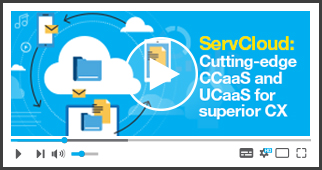Cloud Analytics is primarily a type of cloud service where data analysis and related services are performed on a public or private cloud. Cloud adoption is increasingly expanding as more companies find success with its implementation. According to Gartner, the Business Intelligence (BI) and Analytics market is expected to continue to grow 7.9% through 2020. One of the primary drivers of new growth in this rapidly evolving market is interest in cloud deployments as they have the potential to reduce the cost of ownership and speed the time to deployment. There is also the ease of data sharing, collaboration, and data security.
One of the major driving force for large organizations to decide on the cloud is Big Data Analytics. As Big Data Analytics involves massive amounts of data and infrastructure large enough to handle the amount of data required to provide a compelling insight, organizations now have the option of shifting this resource intensive burden to the cloud.
Services offered by Cloud Analytics
- Software as a Service (SaaS) uses the web to deliver applications that are managed by a third party vendor and whose interface is accessed on the client side. Eg. Google Apps, Salesforce, Cisco WebEx
- Infrastructure as a Service (IaaS) provides the hardware needed to handle large sets of data remotely. Eg. Amazon Web Services, Microsoft Azure, Google Compute Engine
- Platform as a Service (PaaS) is a cloud-based computing environment designed to support the rapid deployment, running, and management of applications
- SAP Cloud for Analytics (C for A) is a Software as a Service (SaaS) business intelligence (BI) platform by SAP for the cloud with the intent of providing all analytical capabilities to all users in one product
- Data Analytics as a Service (DAaaS) or Analytics as a Service (AaaS) is an extensible analytical platform provided using a cloud-based delivery model, where various analytical tools are available to efficiently process and analyse huge amounts of heterogeneous data
- Big Data as a Service (BDaaS) is a relatively new terminology that describes a fast growing market. BDaaS is used to describe a wide variety of outsourcing of various Big Data functions to the cloud. This includes data, the supply of analytical tools which integrates the data to carry out the analysis and reports. Some providers also include consulting and advisory services as part of BDaaS (eg: IBM’s Analytics for Twitter)

Benefits of Cloud Analytics
- Provides faster access to data: Scattered among the millions of bits of data that surround customer transactions and business processes are nuggets of invaluable information readily available to be acted upon. A cloud-based analytics solution helps to glean, clean and draw insights as data is available real-time
- Offers increased flexibility: Cloud-based applications offer increased freedom and flexibility as they are built with self-learning models. They can expand or adjust the data storage if the business needs extra bandwidth
- Improves decision-making: Whenever there is a need for a new data-driven application, it can be created quickly in the cloud as everything needed is readily available in the cloud. There is no need to purchase and setup new hardware, operating systems, databases, applications servers or analytics
- Enables collaboration: The ability of users to access data from a single source enables them to cut across lines of businesses and core operations. Team members can view and share information easily and in real-time
- Reduced Total Cost of Ownership (TCO): Unlike on-premise solution, there are no upgrade costs or issues and enabling new tools or applications require minimal maintenance. Most of the cloud analytics providers use the pay-as-you-go model which allows you to pay only for the features you are using and the storage space that you use
- Faster Disaster Recovery: When it is difficult to predict or prevent disaster, one good thing about cloud analytics is that it allows for speedy recovery
- High Security: Cloud analytics is more secure and reliable than on premise solution. This is because even a small data breach can be instantly detected whereas with the on premise one it may days or even weeks to detect a breach
- Prevents data loss: With a cloud-based server, all the information you’ve uploaded to the cloud remains safe and accessible. While in the on premise, there is a greater possibility of data loss if the local system dysfunctions
- Automatically updates: Cloud based systems automatically refresh and update themselves whereas in the on premise model updates have to happen manually
- Multi-Tenacity: Spreading resource costs across a larger number of organizations means a lower cost per each user

Challenges in Cloud Analytics
As adoption of cloud analytics becomes rapid, there is a concern regarding data governance. The reasons being:
- As usage of cloud-based applications increase, there is lot of inconsistent business data which cannot be trusted or reused
- As all kinds of data are sourced in, overriding an organization’s firewall, the organization loses internal control and requires a new governance model
- Data integration becomes difficult- Incorporating cloud-based data assets including analytics into the data and governance process is far more complicated than on premise model
- Business units bypass IT and any existing governing processes while buying cloud-based applications as they feel it is not necessary
- Licencing limits – cloud licencing can limit the organization’s use of cloud data such as how it can be repurposed or redeployed
- Lack of skilled resources – Lack of resources who are skilled or experts in cloud analytics and security is a major concern
- Data movement is difficult – Significant volumes of data are usually moved to the cloud and it is a real challenge to make this movement a seamless one
- Cloud services are not standardized – Some services are pay-as-you-go while others are fixed rate. The challenge is in finding out the right model that fits your budget and need
Though there are some challenges, yet with all its processing power, scale, and economics, cloud analytics is the future and is a major competitive differentiator that provides the edge.
- Categories
- Tags
- Archives
Subscribe For Updates
Get the Servion Blog updates in your inbox.
Recommended For You
- Why isn’t anyone talking about contact center reporting?
- 5 steps for building a high-performance customer service culture
- The Ultimate Guide to Creating the Contact Center Super Agent
- 5 Ways to Improve First Call Resolution and Increase Response Rate
- How to Retain Contact Center Agents in a Digital, Work-from-Home World











